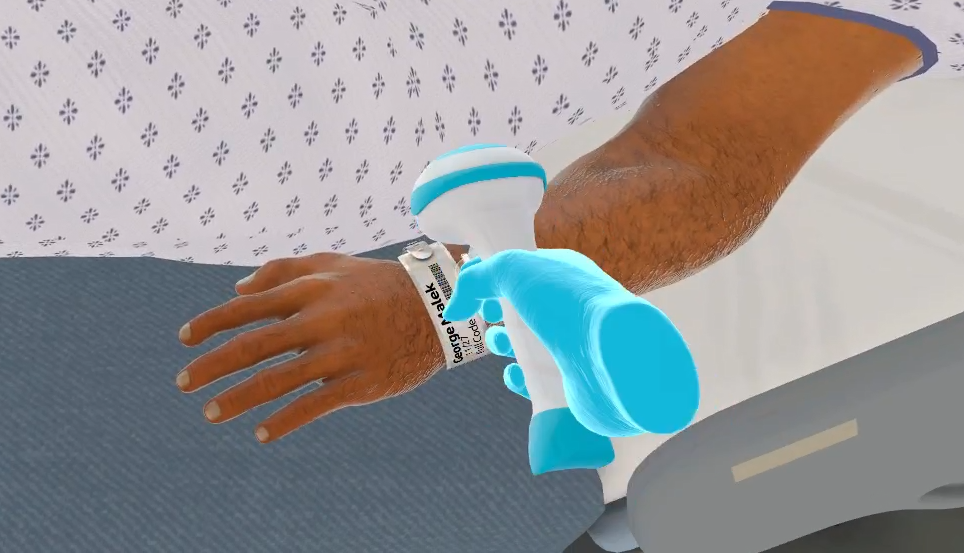New Research Reveals AI is Changing Hospital Hiring Expectations for Nurse Graduates
Survey: 65% of hospital hiring leaders say it's harder to find practice-ready nurse graduates than 3 years ago; VR sim could reduce training time by 4 weeks
UbiSim study finds 65% of hospital hiring leaders say it's harder to find practice-ready nursing graduates today as AI transforms healthcare; VR simulation could reduce new nurse training time by four weeks
Boston, October 8, 2025 – A sweeping new study of 390 hospital and health system hiring leaders across the United States and Canada reveals a widening gap between nursing education and employer expectations, with artificial intelligence (AI) driving unprecedented changes in required competencies for new graduates.
The research, conducted by UbiSim by Labster and released in the report "Practice Ready? Not Really: Understanding the Gap Between Nursing Education and Employer Expectations," found that 65% of hiring leaders say it's significantly harder to find practice-ready graduates today compared to just three years ago. This lack of qualified candidates presents a challenge in filling available nursing positions, with 56% of hiring leaders reporting at least one bedside nursing position vacant for three months or longer.
AI Skills Surge from "Nice-to-Have" to Essential
Perhaps most striking is the dramatic shift in expectations for nurse practice readiness. The study found a 165% increase in the share of hiring leaders who now consider AI-assisted charting an essential competency – jumping from 26% three years ago to 69% today. This rapid evolution reflects the pace of technological transformation across healthcare settings.
“Healthcare is changing rapidly, and nursing education must keep pace,” said Dr. Christine Heid, PhD, MSN/Ed, RN, CNE, CHSE, Nursing Simulation Specialist at UbiSim. “Our research shows that while new graduates bring strong textbook knowledge, 62% of hiring managers report they struggle to translate that knowledge into practice. By embracing experiential learning and AI-powered technology, nursing programs can better prepare graduates to enter the workforce as confident, adaptable nurses ready to deliver the care patients need and deserve.”
Top Competency Gaps Drive Need for Change
The study revealed significant optimism about advanced simulation technologies. Three-quarters of respondents (76%) agree that integrating high-fidelity simulation – including VR, AR, and other immersive formats – into undergraduate nursing curricula could safely shorten nurse residency programs by approximately four weeks without sacrificing competence.
Hospital hiring leaders identified the top competency gaps in new graduates as:
- Limited experience working within interdisciplinary care teams (47%)
- Weak prioritization under heavy patient loads (45%)
- Lack of confidence communicating with patients and families (40%)
- Clinical judgment gaps in rapidly changing patient scenarios (38%)
- Limited familiarity with modern EHR/documentation workflows (35%)
Nursing Remains a Highly Secure Career Path
Despite the challenges in preparedness, the study reinforces nursing's long-term career security. Fifty-two percent of respondents rate nursing as "highly secure" over the next decade – outpacing even physicians.
Importantly, only 17% of hiring leaders believe bedside nursing roles are vulnerable to AI-related job displacement, viewing artificial intelligence as a force multiplier rather than a replacement for human clinical judgment.
Download and Learn More
The complete research report is available for download at www.ubisimvr.com/ebook-practice-ready-not-really. Nursing educators and simulation leaders are also invited to register for a free webinar featuring Dr. Sheri Howard, PhD, RN, CHSE, held on October 15 at 12 p.m. ET, to discuss the "Benefits of VR Before Clinicals: Reshaping Mental Health Nursing Education" at https://www.healthysimulation.com/webinars/ubisim-nursing-student-vr-mental-health-training/.
About the Research
The research was conducted between July 31 and August 15, 2025. The study surveyed 390 full-time hospital and healthcare system employees in North America directly involved in hiring new nurses, with 95% confidence and a +/- 5% margin of error.
About UbiSim
UbiSim is Where Nursing Practice Gets Real. Our immersive VR simulation platform—designed by nurses, for nurses—empowers newly licensed nurses to build clinical judgment, confidence, and communication skills in a safe, realistic environment. With our Intuitive Editor™, nurse educators can easily customize scenarios to match specific hospital protocols. UbiSim helps hospitals improve retention by delivering scalable, evidence-based training. Recognized as a TIME Best Invention, UbiSim supports nursing excellence from pre-licensure through professional practice. Learn more at www.ubisimvr.com.
Explore more

UbiSim Brings AI-Driven Insights to Nursing Education
AI Narrative Analysis helps educators save up to 90% of data review time, streamline assessment, and prepare nursing learners for real-world clinical challenges

New Report Released: "Gaps in Current Nurse Residency Programs"
Qualitative research reports 4 key challenges in today's nurse residency programs and a checklist to solve them

UbiSim Advances Healthcare Simulation with Powerful Updates in 2025
UbiSim announces updates to its Intuitive Editor with new tools, scenarios, and admin options -- plus upcoming AI features


